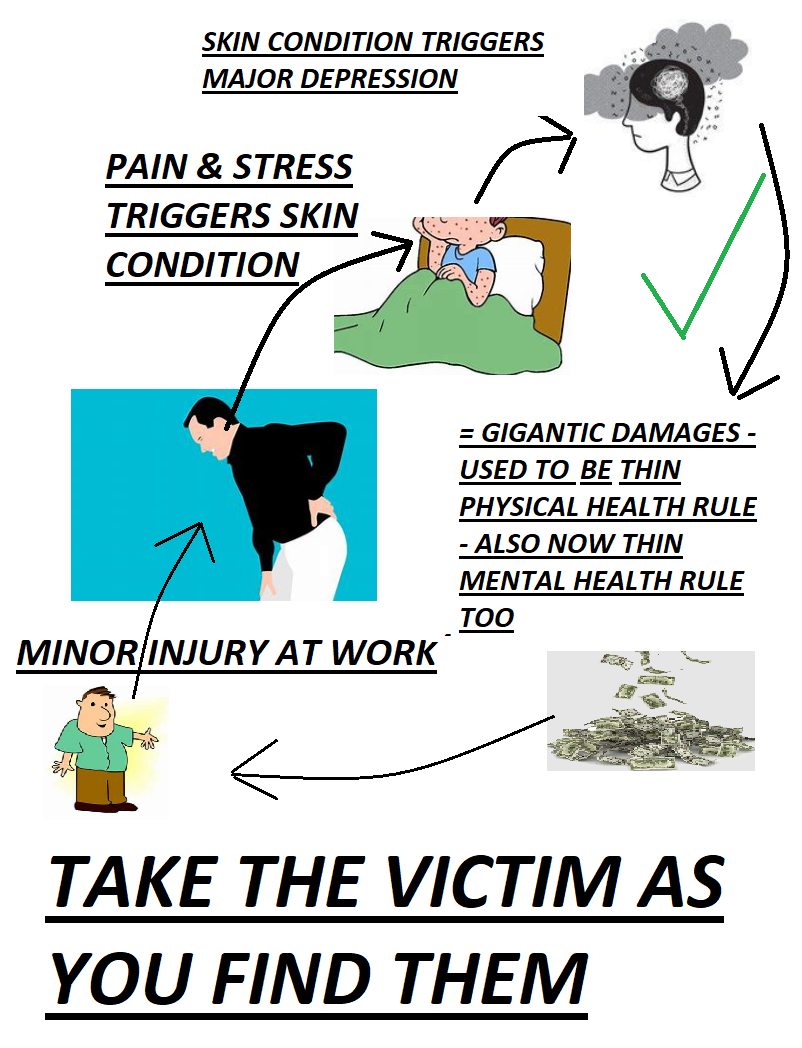Simmons v British Steel plc [2004] UKHL 20
Citation:Simmons v British Steel plc [2004] UKHL 20
Rule of thumb:Although it is the ‘skull rule’ and the principle of ‘taking the victim’ as they find them applies, damages which were too remotely connected to the accident cannot be reclaimed, and where this is not the case the ‘remoteness of damages’ principle applies to stop these being reclaimable if they were going to be suffered anyway. However remoteness of damages can often be a grey area as to whether they would have been suffered anyway or not
Background facts:
The basic facts were that Simmons suffered an accident at work – he had suffered from a skin condition and depression prior to the accident, but these became significantly worse after the accident due to the anger he felt at the accident.
Judgment:
The Court held that Simmons was allowed to claim for these & remoteness of damages did not apply by the facts of this case. In short, Simmons was awarded around £3,000 for the actual physical injuries he suffered in the accident at work, and around £500,000 for the mental injuries he suffered, showing why this was such a hotly debated case.

Ratio-decidendi:
‘Since the pursuer in the present case actually suffered physical injuries as a result of the defenders' fault and negligence, the starting point is that he is a primary victim in terms of Lord Lloyd's classification. Mr Smith argued, however, that the pursuer's psoriasis and his depressive illness sprang not from the accident itself, but from his anger at the happening of the accident. Hence he could not recover damages. I see no reason to give effect to such a distinction, even supposing that it can be realistically drawn in a given case. Regret, fear for the future, frustration at the slow pace of recovery and anger are all emotions that are likely to arise, unbidden, in the minds of those who suffer injuries in an accident such as befell the pursuer. If, alone or in combination with other factors, any of these emotions results in stress so intense that the victim develops a recognised mental illness, there is no reason in principle why he should not recover damages for that illness’, Lord Rodger, ‘a "thin skull" kind of case’, Lord Scott
Warning: This is not professional legal advice. This is not professional legal education advice. Please obtain professional guidance before embarking on any legal course of action. This is just an interpretation of a Judgment by persons of legal insight & varying levels of legal specialism, experience & expertise. Please read the Judgment yourself and form your own interpretation of it with professional assistance.

